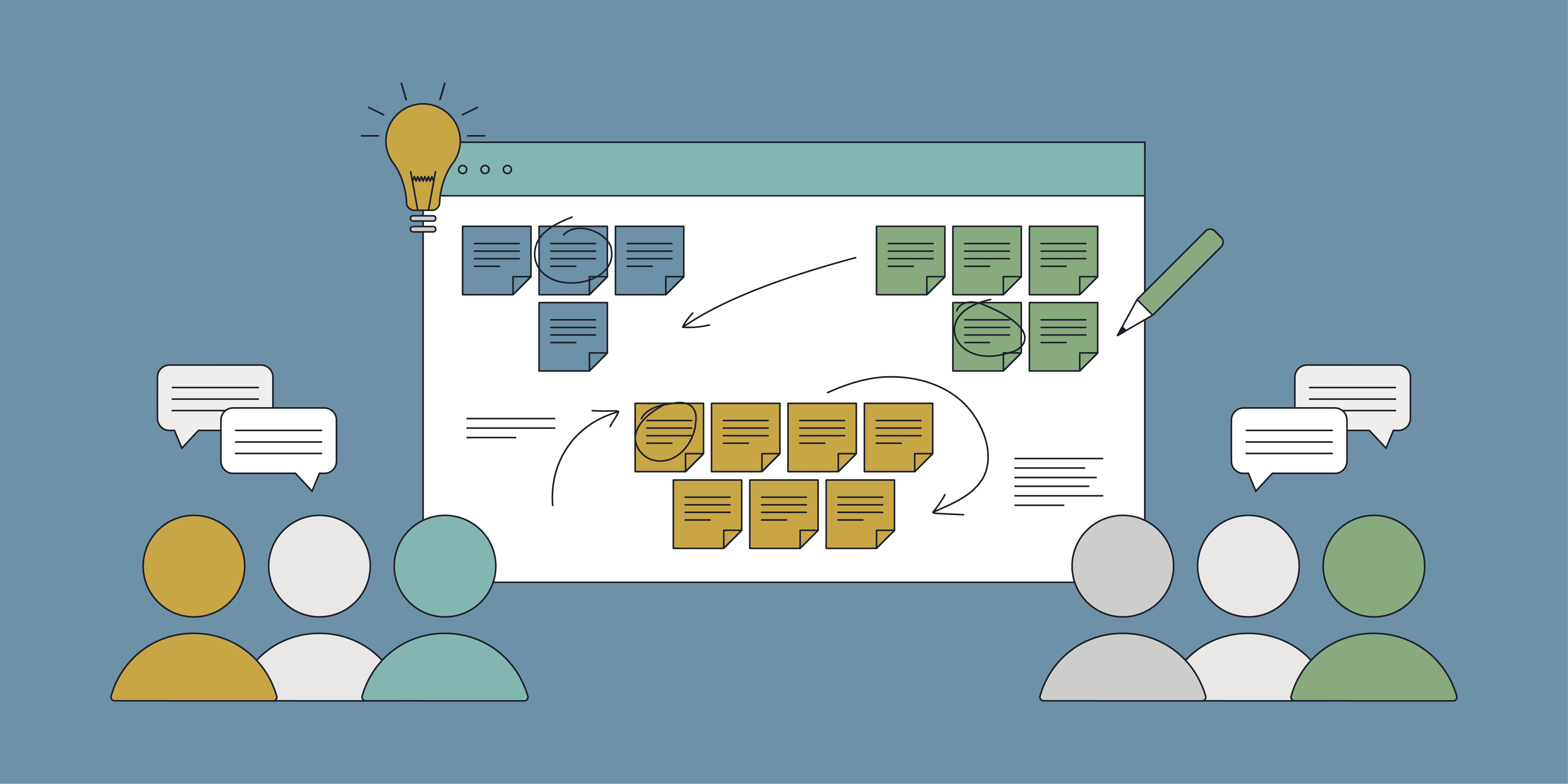How to get the most from your B2B project kick-off workshop
16th July 2024 •
16th July 2024 •

Imagine you’re starting a new project. It could be enhancing a current feature or flow, launching a new feature, or something more complex – like redesigning an entire digital product. Whatever the challenge, every new project can benefit from a kick-off workshop.
But, what’s the key difference between a standard kick-off meeting and a kick-off workshop?
A standard kick-off meeting is usually a one-way conversation, focused on listening to and interviewing the client, and asking follow-up questions. Typically, nothing is created during this meeting.
In contrast, a kick-off workshop (like most other workshops) is about collaboration and contribution. In this instance, tangible outputs are generated. It’s vital to understand that during a workshop, all voices and ideas matter. This is not a one-way interaction.
As you’d expect, the best time for a kick-off workshop is at the very start of a B2B project. It’s also part of what we call the discovery phase. In UX design, this phase is like a “getting to know you” stage in creating a digital product. This is when we delve into the project’s foundation. We analyse the brief to understand business goals, user needs, technological possibilities, timeframes, and other critical aspects of the product, as well as constraints. It’s an excellent way to gather key stakeholders to align their thoughts and set the stage for the work ahead.
At Torpedo, we have witnessed first-hand how these workshops positively impact the entire project lifecycle. They are not just meetings, they are the launchpad for innovation, efficiency, and excellence in digital product development.
For any B2B project aiming for success, the kick-off workshop is an indispensable step, one that we are passionate about facilitating and perfecting.
A kick-off meeting is typically a one-way conversation focused on listening and interviewing the client, whereas a kick-off workshop is collaborative and generates tangible outputs. Workshops involve active participation from all stakeholders and are best held at the start of a B2B project during the discovery phase.
The facilitator leads the workshop, guiding discussions and recording outputs. Participants are stakeholders who actively contribute ideas and feedback. A notetaker documents key points and decisions for future reference.
It aligns objectives and roles, fosters collaboration and trust, and broadens understanding of customer needs and challenges. Workshops help teams share expertise and build stronger relationships.
Stick to the objectives, prepare in advance, participate actively, share your point of view, and reflect on the outcomes post-workshop. These actions ensure valuable contributions and effective implementation of insights.
The session begins with introductions and ice-breaking activities, followed by tailored exercises aligned with business goals. The facilitator ensures discussions stay focused and on schedule, with contingency plans in place for technical issues.
Outcomes may include initial ideas, priorities, timelines, roles, and responsibilities. A shared understanding of project goals helps guide future development, feature prioritisation, and milestone planning.
